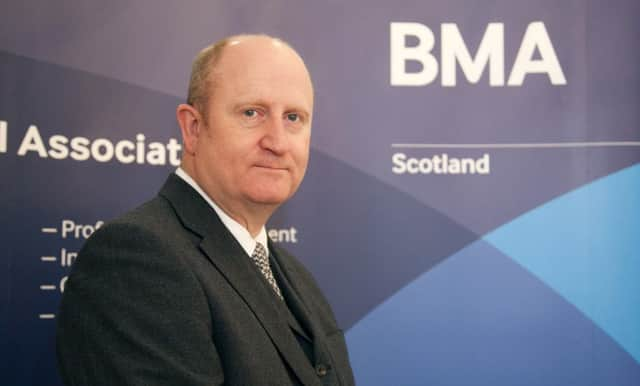Leader comment: The NHS is crumbling before our eyes


Some may have dismissed doctors’ complaints about stress, workload and staff shortages in the NHS as the usual moaning by the employees of a large organisation. Perhaps it would be a prelude to talks about pay, a cynic might suggest.
But, when the head of the British Medical Association in Scotland, Dr Peter Bennie, decides the problems are so great that he is going to leave his job as a consultant psychiatrist, then everyone who wants the National Health Service to remain in anything like its current form needs to take notice.
Advertisement
Hide AdAdvertisement
Hide AdThe departure of such an eminent figure demonstrates that the working conditions are now becoming intolerable for doctors even at the top of the profession.
He described how at the end of the day he would “run over in my head the things I have not been able to do because there is not enough people to do the job as well as we would want to”. He also talked about “struggling to find a bed to admit people when they are in crisis”. Colleagues were “quite happy” to retire, he added, because of “the fear of what might go wrong”.
His words are a warning that must be heeded – by both the UK and Scottish governments and by us all. If the NHS cannot recruit capable staff faster than it loses them – to retirement, the private sector or a different career entirely – then the health service will ultimately collapse. So how much do we want to keep it and what are we prepared to do to ensure its preservation?
This year, the Scottish Government controversially used its ‘tartan tax’ powers to raise extra revenue, much of which is going to the NHS, and in June, Theresa May announced extra funds as a “70th birthday present” for the health service in England, which should also result in an increase in Scotland. But pouring money into a broken system is hardly likely to result in a happy ending for the NHS and its patients. And besides, the sums involved are too small to make a game-changing difference.
The three core founding principles of the NHS were: “That it meet the needs of everyone; that it be free at the point of delivery; that it be based on clinical need, not ability to pay.”
If a bed, a doctor or a prompt appointment cannot be found, patients’ needs are not being met and those that can afford it will simply go private. So it may now be time for radical thinking about what we ask the NHS to do and measures that can ensure its survival.
